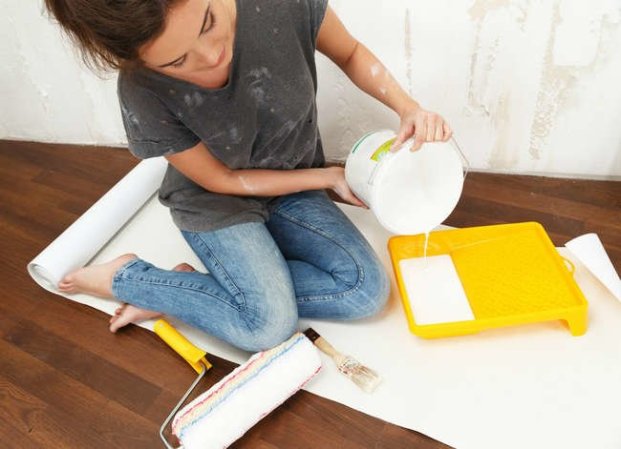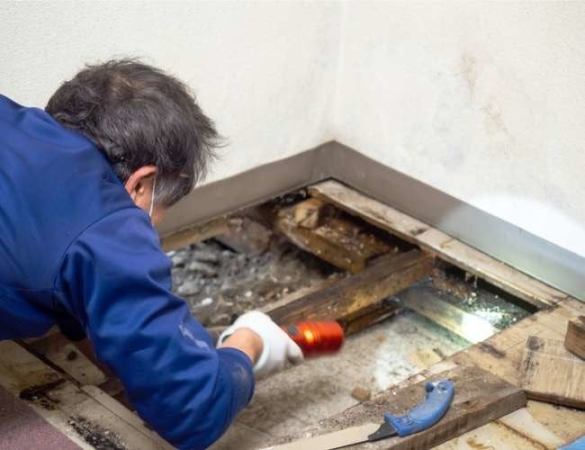We may earn revenue from the products available on this page and participate in affiliate programs. Learn More ›
Help Them Help You

There’s no magic formula for selling your home, but there are principles and methods that work. The problem lies in getting homeowners to embrace these best practices. Understandably, the sellers, who have lived in the home for years, consider themselves the de facto experts on the best way to present and sell their house. But this stubbornness can lead to missed opportunities and a contentious relationship with the real estate agent, who is the person in the best position to make the process go smoothly and quickly. Here’s what your real estate agent wishes you knew about selling your home.
Buyers Are Judging Your Level of Cleanliness

Many sellers expect buyers to take a holistic approach during house tours, looking at the big picture and not focusing on tiny flaws. But in reality, your carefully maintained hardwood floors and updated appliances might leave less of an impression than some of the seemingly minor details you’ve overlooked. “When buyers are touring a house, they will be quickly turned off and grossed out by a cluster of dead bugs in a light fixture,” warns
Melanie Dawkins
, real estate agent at Red Door Realty in Lincoln, Nebraska. “Also, buyers are going to open that oven door, and if it is dirty, smelly, or there is burned food on the bottom of that oven, they are never going to be able to imagine cooking a Thanksgiving turkey in there.”
In addition, if they open your refrigerator door and see crusted milk on the shelves or bits of food in the drawers, Dawkins says they won’t be able to picture themselves putting
their
food in that fridge. “Instead, they’re going to be left with a disgusting image of your dried-up leftovers, and if they can’t get the images of your uncleanliness out of their minds, they’re not going to be able to imagine their own belongings in that house—and they’re not going to buy it.”
Your Junk Is Affecting the Sale

Most homeowners accumulate a lot of stuff over the years, but when it’s time to sell your house, remember that buyers are looking for something fresh and new. “If their house is small and cluttered, they want a house that offers them what they don’t have,” Dawkins explains. She says sellers have to understand that buying is also an emotional experience: “Some buyers think that if they can start fresh, their life will be different.” But if they see your house as being just as cramped and cluttered as their existing one, you’re only offering them more of the same.
Your Realtor Is More Important Than You Know

Many homeowners select a real estate agent who is a friend or family member. But according to Kris Lindahl, CEO and founder of
Kris Lindahl Real Estate
in Minneapolis, Minnesota, this is a mistake. “Not all Realtors are created equal, so don’t fall for the friends-and-family-member trap,” Lindahl warns. If you settle for using someone you know, Lindahl says this choice could cost you tens of thousands of dollars. “Homeowners need to treat choosing a Realtor like a business transaction, not a personal one.” You want a skilled negotiator with experience and a long list of happy, satisfied clients.
Be Prepared to Go the Distance

If this is the first time you’ve ever sold a home, buckle up, buttercup! “Although you’re hiring a professional to sell your home, there is consistent work for sellers, which tends to take its toll over time,” says broker
Gill Chowdhury
of Warburg Realty in New York City. For example, open houses and showings can get old quickly, particularly when you’re packing up the kids every Sunday and leaving the house for several hours. Having to keep the house model-home-ready can also wear you down. “Perhaps after four months, you’re now frustrated at what is otherwise a very reasonable offer because you feel that you should be getting more—given how great your home is and all the times the buyer came back to view it,” Chowdhury says. “Being prepared to go the distance as a seller before you go to market is incredibly important if you’re hoping to walk away with a win.”
You’re Not the Realtor

It’s true that no one knows your home better than you do. But that doesn’t mean you necessarily know the best way to market and sell it. “Some home sellers can be a little too involved in the marketing of the home,” says Chuck Vander Stelt, a real estate agent based in Valparaiso, Indiana, and founder of
Quadwalls
. For instance, you may want to include details about the home that you consider to be selling points—but they’re not. “The most common issue is sellers wanting to include arbitrary information which does not move the needle on making the home more attractive. Arbitrary information just clouds the marketing message.” Buyers have a short attention span, and you’re competing with a lot of other sellers. “Home sellers would benefit by letting their real estate agent take the lead on marketing and keeping with the defined marketing message,” he advises.
Related:
12 Reasons a Realtor Might Not Want to Work with You
Stand Back and Let the Stager Stage

As the homeowner, you probably have plenty of ideas about what looks good in your space. But according to Cynthia Cummins, founder and Realtor at Kindred SF homes in San Francisco, California, you’re not an authority on staging. “Hire a professional stager and get out of the way,” she recommends. “Making suggestions to them is sort of like telling your dentist how to extract a tooth after she’s put the dental dam in your mouth—it’s better to just sit back and relax.”
Lindahl of Kris Lindahl Real Estate in Minneapolis agrees that this is a trap that homeowners tend to fall into. “The average homeowners sell a house every 10 or more years, and the colors and decorations they like will probably match people like them but won’t be appealing to other generations,” he explains. “Our staging team has done this thousands of times, so we know what’s going to make the house appealing to buyers.”
Yes, Your Home Needs to Be Staged

It’s tempting to think your home looks good enough that staging won’t be necessary, but don’t give in to the temptation: “Spending some additional time and money on staging could mean your house sells quicker and maybe for a better price,” says Ruth Shin, founder and CEO of PropertyNest in New York City. She explains that staging helps buyers see themselves in the home and provides a sense of scale. And believe it or not, Shin says that empty rooms can appear smaller than they are. “Staging can be something as simple as putting in beautiful touches and upping your decor a bit, to actually bringing in furniture or putting a fresh coat of paint in each room,” she says.
Staging also helps highlight your home’s assets, and this can make it stand out from the competition. “If your home has a great walk-in closet, have it outfitted with clothing neatly hung and folded, showing potential buyers how the space can be utilized,” recommends agent Marilyn Blume of Warburg Realty in New York City. “Now more than ever, home offices have become more in demand, so furnishing that room like an office can be worth the investment, even if you need to buy new furniture to stage it.”
Don’t Rely on Websites for Accurate Home Estimates

Technology is great, and with a few keystrokes you can find almost anything. But not all of that information is accurate. “All too often, sellers can be unrealistic about their home’s value, relying on their own biases and flawed data,” says Chris Fajkos, a Realtor at Tahoe Mountain Realty in Truckee, California. “Zillow, Redfin, and other national real estate websites are notorious for publishing wildly inaccurate home value estimates since they rely on a blanketed calculation for all regions.” He notes, however, that a local, seasoned real estate agent will know that specific region’s current market trends and other factors.
It's Not About You—It’s About the Buyer

Impartiality. Objectivity. Open-mindedness. These are some of the traits you need to adopt when selling your home. “When you list your house, you want it to appeal to as many potential buyers as possible,” says Fajkos. “By removing your personal attachment to the home and taking some outside and professional advice on how to best present the home in its best light, the probability of the home selling faster and for top dollar greatly increases,” he explains.
This view is shared by Cummins of Kindred SF Homes in San Francisco, who says your real estate agent’s job is to sell your home—not flatter you. “Your agent may make a suggestion for improving the way your home shows and it really rankles you,” she says. But remember that your agent is on your side and is trying to provide feedback that will help your home sell faster and for more money. “So, get over yourself and recarpet the entry stairs, paint the front door, and replace the dining room light fixture.”
Overpriced Houses Don’t Sell

All of your real estate agent’s hard work is for naught if you don’t agree on a pricing strategy. “Many homeowners think that the most important aspect of successfully selling a home is the marketing,” says Greg Kurzner, president and broker at ERA Atlantic Realty in Alpharetta, Georgia. “The cold hard truth is that your Realtor can be the best marketer in the world and throw every type of marketing, staging, and virtual touring experience possible out there, and if the property isn’t priced competitively, well, the results are going to be disappointing and the homeowner will be frustrated with the agent and the experience.” In fact, Kurzner says he won’t work with a homeowner who isn’t realistic about the home’s price. “If we do price on the top end of the recommended price range, I stress that traffic in and feedback about the home in the early going will determine if we need to adjust pricing or stay the course.”
















